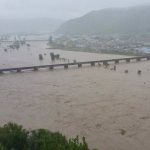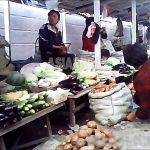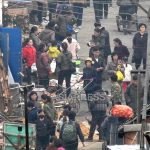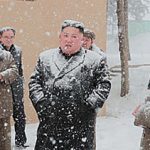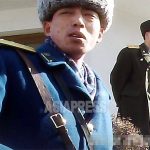
◆Workers are sent to China and Russia despite UN sanctions
North Korea is rushing to send workers abroad, which appears to be a way to quickly restore foreign currency earnings that were severely curtailed during the COVID pandemic. Background checks on applicants are said to be faster than before, but much more thorough. ASIAPRESS' reporting partners in Ryanggang Province and North Hamgyong Province provided information about the latest circumstances in North Korea about this issue. (KANG Ji-won / JEON Sung-jun)
◆ A simplified and quicker selection process
According to a Ryanggang Province reporting partner, the screening process, which used to take about three months, has been pushed to the point where it takes less than a month.
"It used to take more than three months because of physical tests, training, and classes, but now they have shortened the secondary procedures. After the start of the interview process, they usually leave (for overseas) in 25 to 30 days."
A reporting partner in North Hamgyong Province also said that more than five people around him have recently gone abroad, and the destinations are mainly China and Russia. In particular, those with good foreign language skills or skills such as plastering, tiling, or welding are priority candidates for overseas assignments.
◆ Workers selected from the interior, not border areas, and some are sent in groups from their own workplaces
The reporting partners also said that people from areas far from the North Korea-China border are priority candidates for overseas work. "They don't hire people from border areas such as North Hamgyong Province and Ryanggang Province unless they have special skills," said the reporting partner in North Hamgyong Province. "They send (abroad) a lot of skilled workers from outside the border areas such as Kimchaek and Kilju," the Ryanggang Province reporting partner said.
In short, the authorities are trying to prevent workers from defecting - while also attempting to lower the risk of internal information leakages - by selecting people from the interior of the country who are relatively unaware of the outside world. These people are considered safer than those in border areas who have some knowledge of the world outside of North Korea, and who are more likely to have relatives who have escaped to China, South Korea, Japan or other places.
There are also instances where workers from the same workplace are sent abroad as a group.
"Sometimes whole work teams leave," the Ryanggang Province reporting partner said. "That's because it's easier to manage the workforce. They don't go for a long period of time, just short periods - about a year - and the head of the work group and the party secretary go with them."
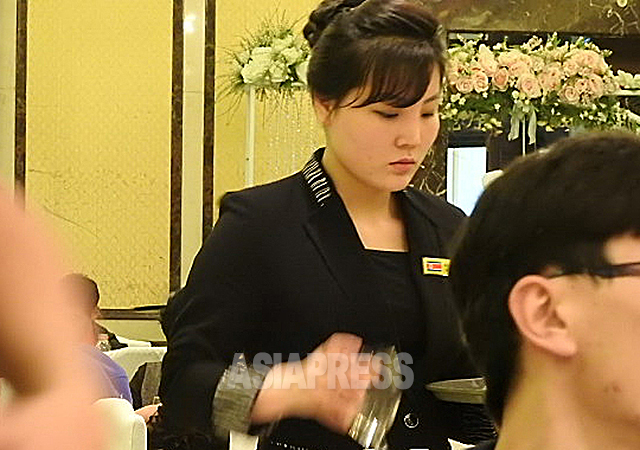
◆ Background checks have become more thorough
In addition to the quicker pace of the application process, a notable change from the past is that background checks are also becoming faster and more thorough, especially in terms of the applicant's past behavior, according to the reporting partner in North Hamgyong Province.
"They used just to look at the in-laws of anyone going to another country (a wide range of relatives), but now, they're even checking if they've watched South Korean movies or dramas in the past."
In recent years, he said, there has been an increase in the number of provincial party committee background checks and people coming to the homes of acquaintances to check the backgrounds of people who have applied to go abroad. Officials also visit local security bureaus and police stations to conduct additional investigations.
The Ryanggang Province reporting partner said that there should not be any defectors or missing persons among the families of people wanting to go abroad, and they must have the endorsement of three work colleagues.
"They have to get permission from a youth league or party organization through a recommendation from their company, and they have to have a signature from a neighborhood watch unit leader, a security guidance officer, and a security guidance officer."
This is consistent with the findings of the reporting partner in North Hamgyong Province.
◆ Some sell their homes to go abroad…Government relies too much on foreign currency to stop sending workers abroad despite risks
For the most part, people are welcoming the situation. Private business activities, including selling goods at markets, are under heavy government control, so more and more people are seeking overseas assignments. Some are even willing to pay bribes to get out of the country, the reporting partner in Ryanggang Province said.
"I know someone who left Russia because he sold his apartment and paid a bribe. I heard that he paid USD 1,200 in bribes, of which USD 500 was a debt. If he didn't do that, he wouldn't have a way to make a living, so he would do anything to go."
Meanwhile, Kim Jong-un's regime, unnerved by the growing number of people with overseas experience, has been cracking down on those with international experience, labeling any outside information they bring back to the country as rumors, and investigating and punishing those who make trouble.
"At the end of February, a woman who went to work in a Chinese cloth factory said that when she worked in China, she ate rice and meat every day, that there was plenty of work everywhere. She went on to say that if she worked, she would be paid and wouldn't starve. But then her grandmother went around the neighborhood talking about it, and the woman was investigated."
Despite being a violation of UN Security Council sanctions, cheap and highly skilled North Korean labor is in high demand in labor-starved China and Russia.
For a regime like North Korea that maintains its power through tight control over information, an increase in the number of people with direct experience with foreign cultures is a huge risk that cannot be ignored. Yet the North Korean authorities are in a bind because they are unable to abandon the foreign currency earned through sending labor abroad.
※ ASIAPRESS communicates with its reporting partners through Chinese cell phones smuggled into North Korea.
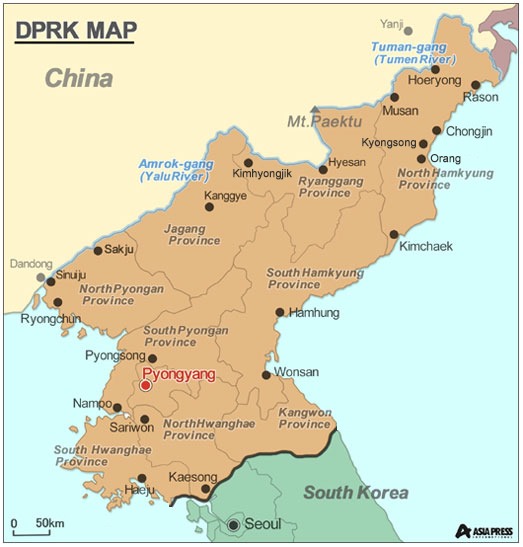
- <Investigation Inside N. Korea> A shocking situation...How are the neglected elderly faring? (1) Poverty-stricken elderly people live off begging and wander the streets
- <Inside N. Korea> Implementation of the large-scale restructuring of trading companies (1) Called “anti-socialist hotbeds,” government forces ‘bases’ of trading companies to close down and consolidate
- <Inside N. Korea> Workers frustrated by worsening workplace rations…Some call out company officials in rare rebuke
- <Inside N. Korea> Fights and even robberies: The authorities troubled by groups of ex-soldiers…Soldiers are placed in construction teams to reintegrate into society… However, men who serve for 8 years miss out on their youth
- <Inside N. Korea> Preparation for construction mobilizations for Kim Jong-un’s “20x10 policy” are complete, but there’s already unrest and complaints among workers over supplies of food
